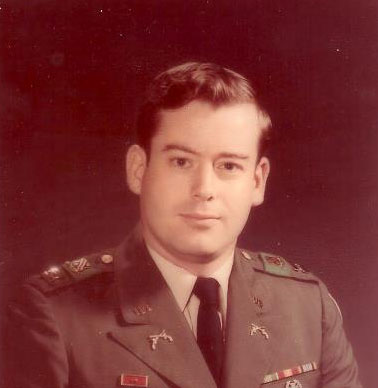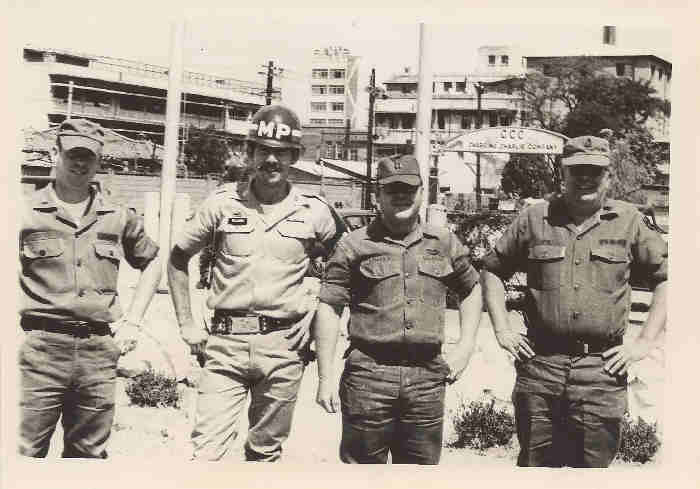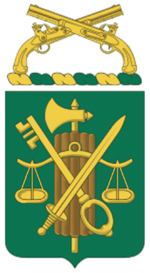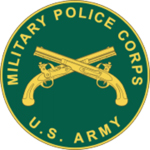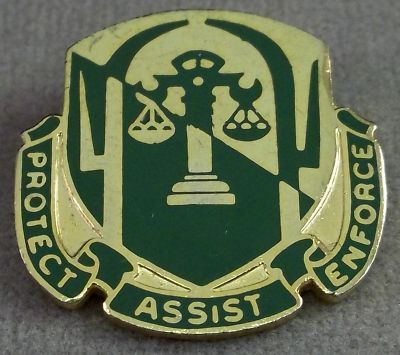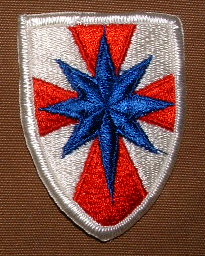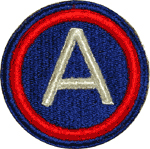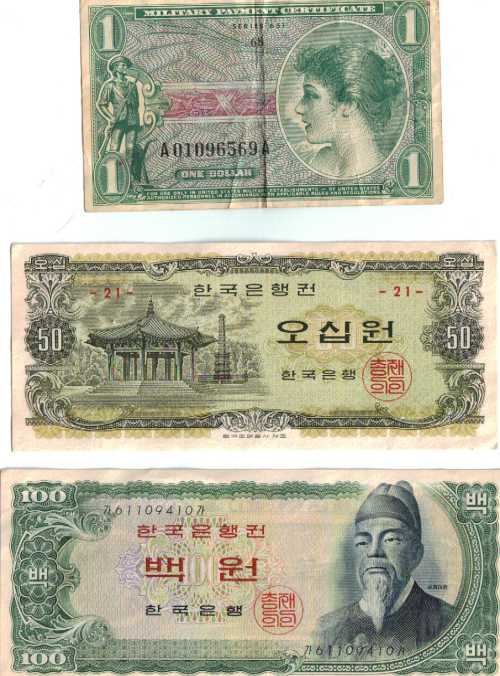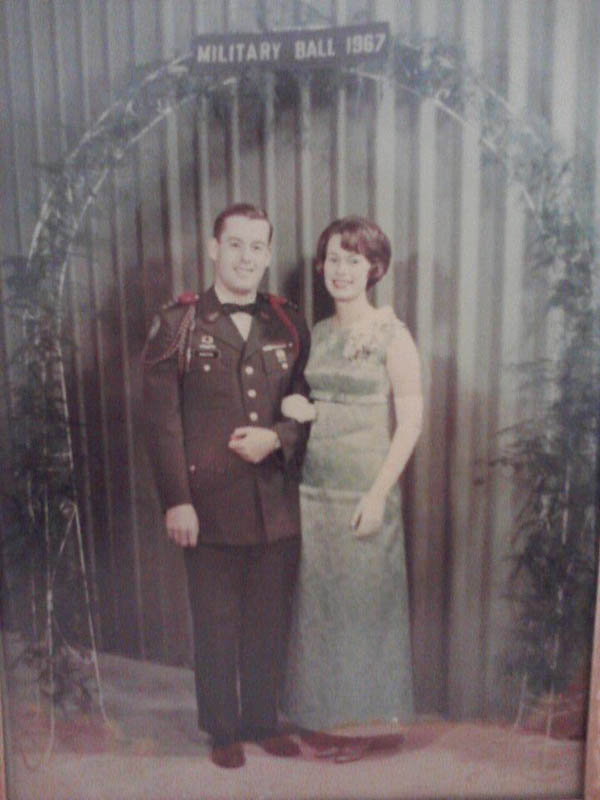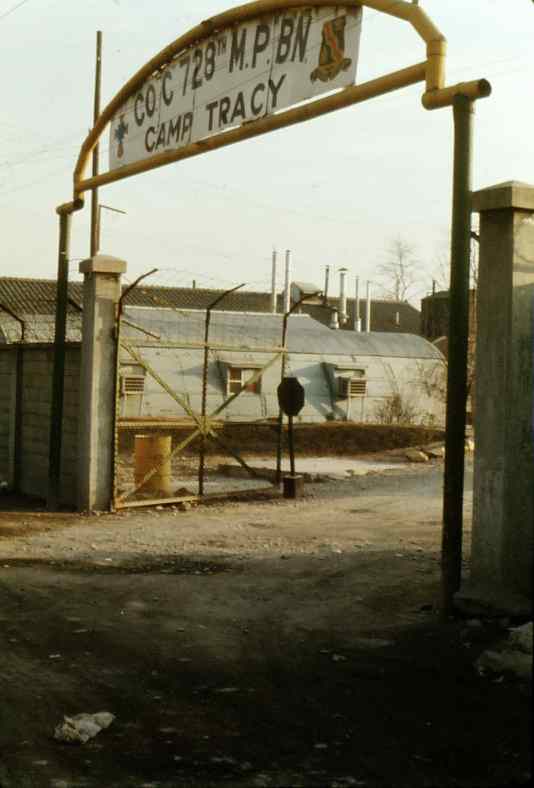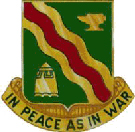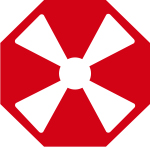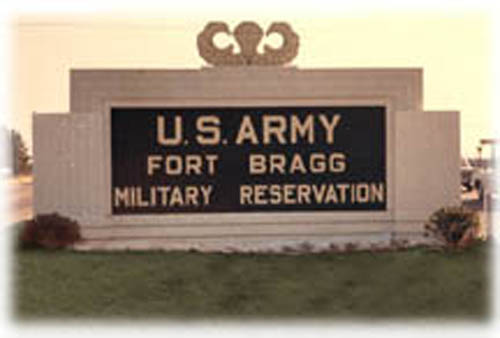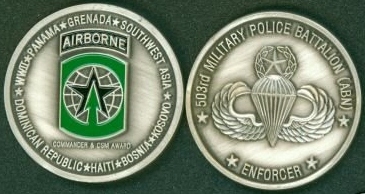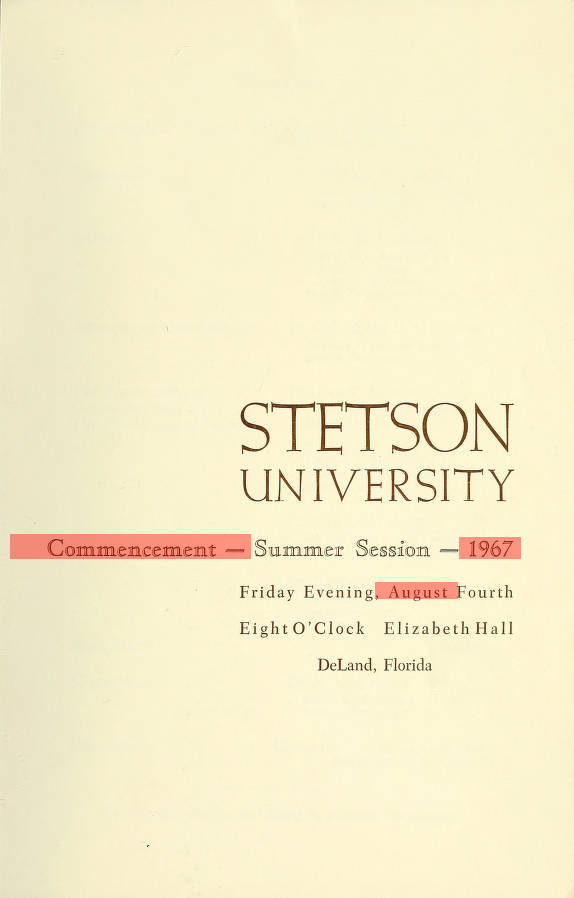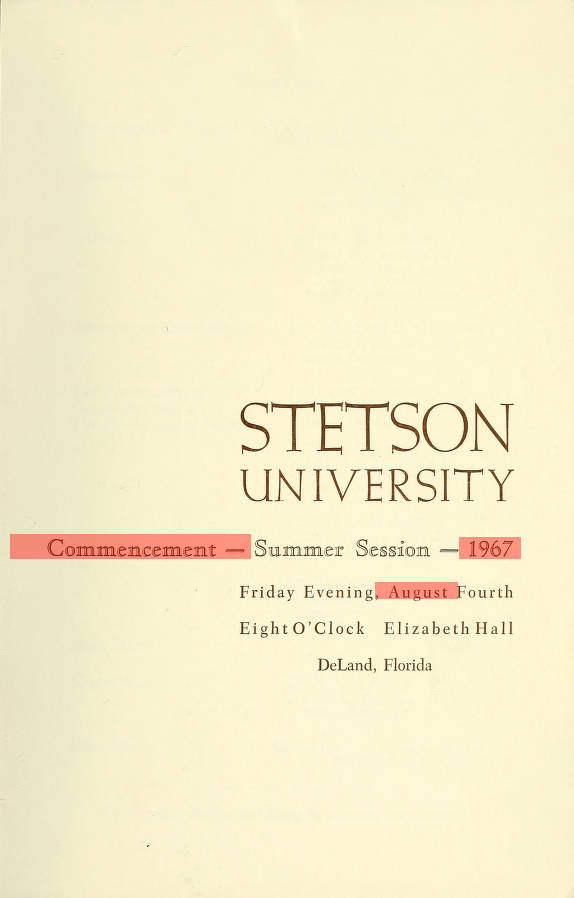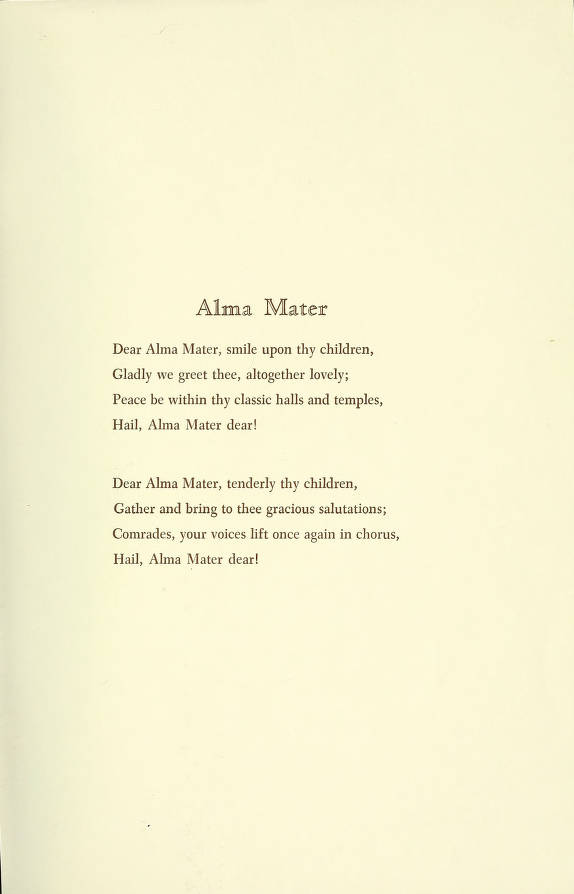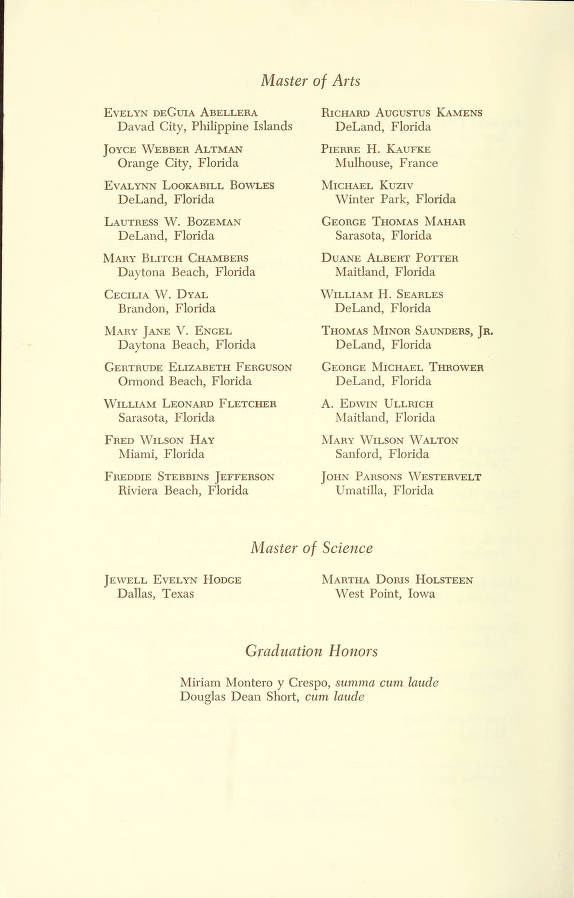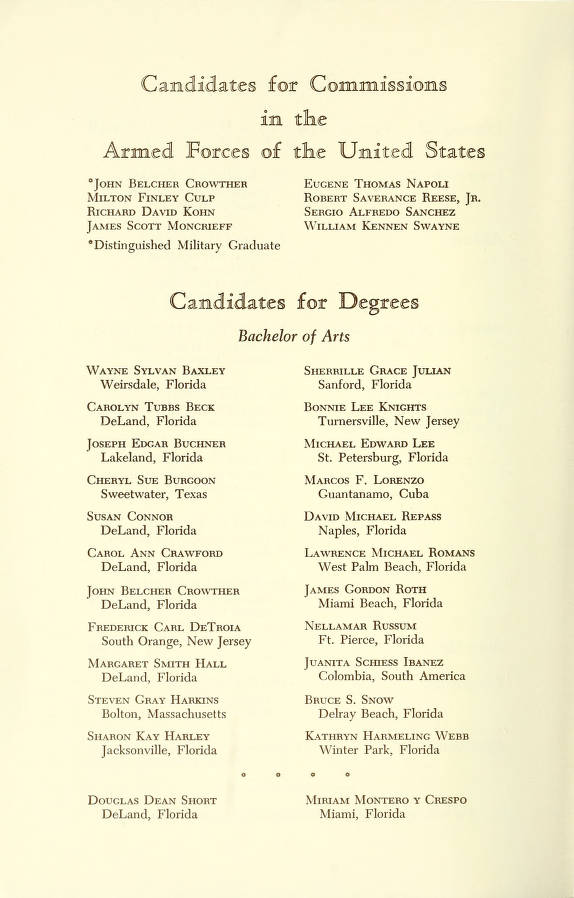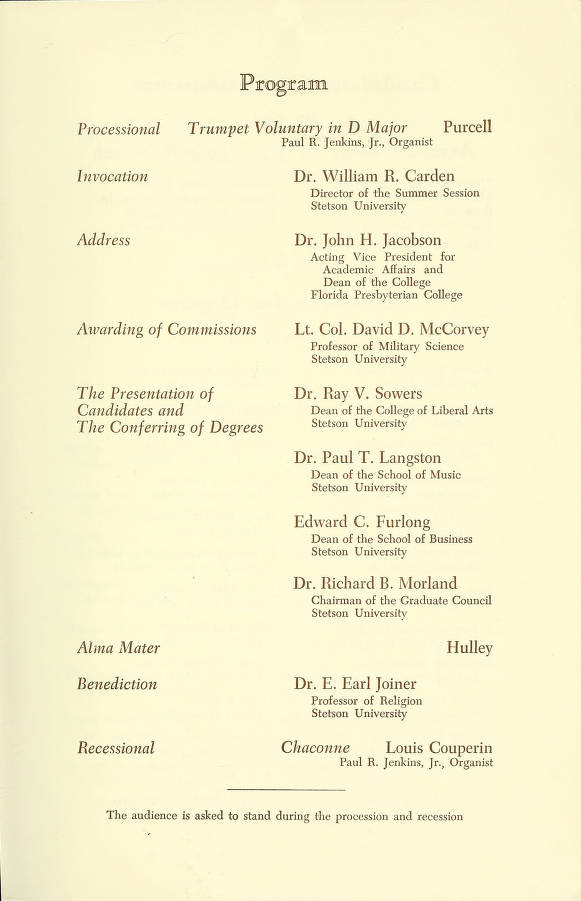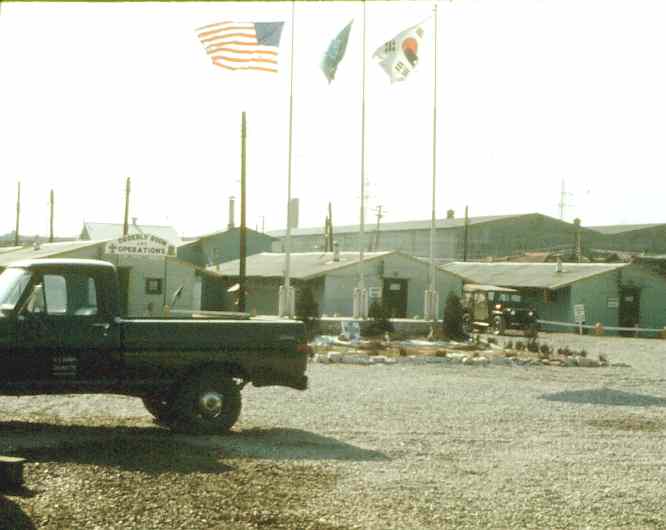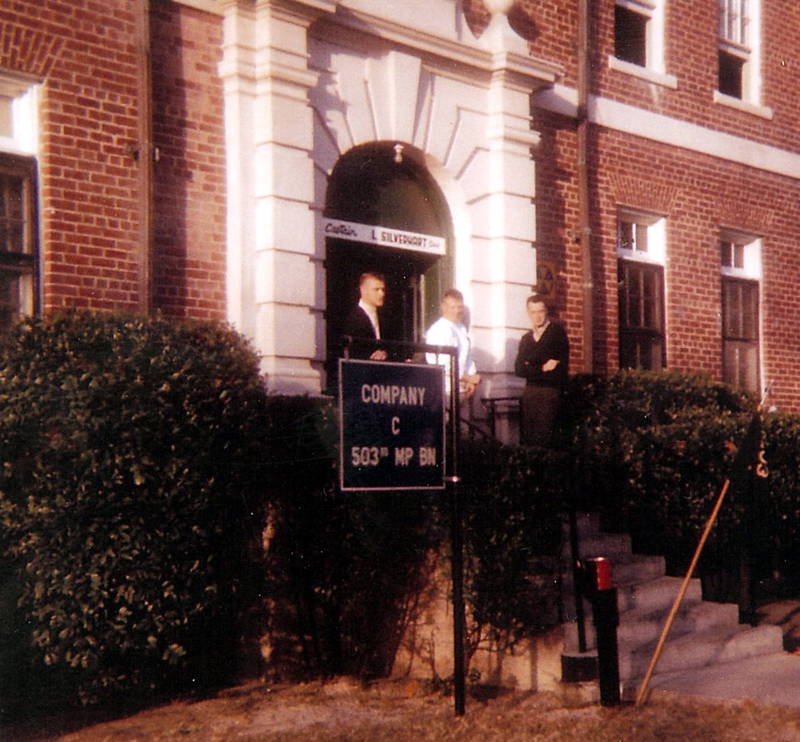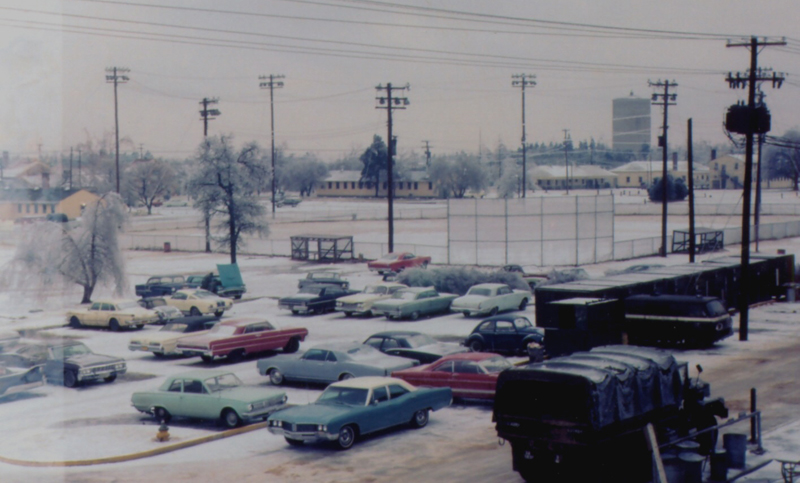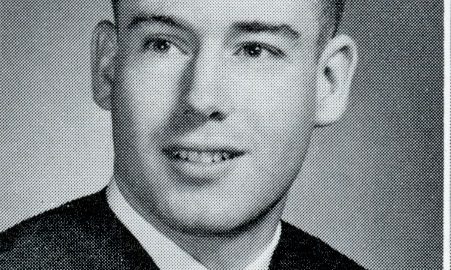Class of: 1967 1969 1974
Brick: yes
Email: [email protected]
In the Fall of 1963, I came to Stetson from Hamden, Connecticut, as a graduate of the Hopkins School in New Haven, and became very active in the ROTC program as a member of the Pershing Rifles and, later, Scabbard and Blade. In my senior year, I was designated as a Distinguished Military Student and as a Distinguished Military Graduate, which made me eligible for a Regular Army commission. I was also a member of Sigma Phi Epsilon (social fraternity) and Phi Alpha Kappa (history honorary) and participated in fraternity intramurals (football and basketball). I was one of the few students who were married while attending Stetson. My future wife (Margaret Louise Smith from New Smyrna Beach) and I met the first day of class as Freshmen, in Dr. Elmer Pritchard’s biology class, and were married in 1965 (December 18) during our Junior year. We graduated together on August 4, 1967 (coincidentally, my mother’s birthday), Margaret with a B.B.A. in General Business, and me with a B.A. in History. That evening, as a Distinguished Military Student/Graduate, I was commissioned as a Second Lieutenant in the Military Police Corps, but declined the opportunity to receive the Regular Army commission as I had been accepted into the Stetson graduate program and had been awarded a Federal Prospective Teacher Scholarship (full tuition, books and a living stipend). That Fall (1967), while attending graduate classes and working on my Masters, I was assigned to a USAR Control Group (which did not require any drill attendance or summer camp) and Margaret accepted a teaching position (8th grade math) at the Sanford Junior High School.
During the Summer of 1968, we lived with my folks in Connecticut while I conducted research for my thesis (“Roger Sherman–The Connecticut Compromiser”) at Yale University’s Sterling Library and Beinecke Rare Book Library. When we returned to DeLand that Fall, I joined Margaret as a teacher at the Sanford Junior High School (8th grade math and U.S. history). At the June, 1969, Commencement, I received my M.A. (Social Studies) and, having learned that we were expecting our first child, we both gave up our Sanford teaching positions and I accepted a position at the DeLand Junior High School, teaching 9th grade civics and coaching football. The Army wasn’t far behind, however, and shortly after classes began that Fall, we received word that I would be called to active duty in November. However, because of Margaret’s delivery date, my entry onto active duty (EAD) was deferred until April, 1970. On February 5, 1970, we became proud parents when our daughter, Jennifer Lynn, was born. With Margaret and Jennifer staying in New Smyrna Beach with Margaret’s folks, I reported for officers’ basic training (MPOB#6) at the Military Police School, Ft. Gordon Georgia., in April 1970. Springtime in Augusta is beautiful, even when you’re in the Army, and the Masters Golf Tournament is quite a draw–it was the perfect time to be there! Upon completion of the officer basic class in June (as an Honor Graduate), I enjoyed 15 days of leave with our family in Florida before reporting to my first duty station–Ft. Bragg, NC– where I had previously attended the ROTC Summer Camp in 1966. On the Fourth of July, 1970, we arrived at Ft. Bragg, NC, where I was assigned to C Company (later re-designated as the 108th Military Police Company–today the Army’s only MP Company classified as both Airborne and Air Assault), 503rd Military Police Battalion, XVIII Airborne Corps, where I served as Platoon Leader, Executive Officer, and, briefly, as Commanding Officer. In addition to my Company duties, pulling Duty Officer at the Provost Marshal’s Office, about once a month, on a major military installation like Ft. Bragg, taught me “the ropes” pretty quickly, and I experienced a variety of incidents ranging from traffic stops and automobile accidents, to domestic disturbances, the accidental shooting death of the MP Desk Clerk in Fayetteville, a plane crash, headcounts at the post stockade (where I once suffered the indignity of being urinated on by a prisoner) and at the 1400 ward (the psychiatric ward) at the Womack Army Hospital. The most pleasant assignment I received while there was for me and hand-picked members of my platoon to provide Military Police support, including Traffic Control Points (TCP’s) and jeep escorts, for the college presidents and dignitaries attending the 1970 ROTC Summer Camp, and convoying them from one location to another around the post. Thanks to one of my Squad Leaders (SGT Dan Daly), everything went smoothly and earned me a Letter of Commendation from the Escort Officer, some nice words and a handshake from CPT Jim Foster, my Company Commander, and the offer of a Regular Army commission from LTC Joe Polanski, my Battalion Commander. On August 4, 1970, a month after arriving, I was summoned back to the Company from the 82nd Airborne Division Jump Master School, where I was attending an Air Movement Course. Entering the Company bay, to my complete surprise, I found the unit assembled in the mess hall, with Margaret, Jennifer and my parents, for my promotion to 1LT and the obligatory promotion party. It was a thoughtful gesture and one I will never forget. Ft. Bragg at that time was the scene of several anti-war protests, and on one occasion the 503rd was called upon to deny post access to Jane Fonda and a sizeable group of demonstrators that she had helped to assemble. I have not been a Fonda fan since. It was also the scene of the beginning stages of the investigation and subsequent court martial of CPT Jeffrey MacDonald, the Special Forces doctor, who was ultimately convicted of murdering his wife and two daughters at Ft. Bragg. The unit was regularly provided MacDonald and his defense team with security and TCP’s whenever they moved on the installation. Under sealed orders, the 503rd was directed to conduct a raid on the post stockade to search for, interdict and confiscate any illegal drugs, alcohol and contraband found there, and to apprehend those responsible. The Battalion staged at headquarters early in the morning under cover of darkness and, before sunrise, broke through the stockade gates in 2½ ton trucks, rounded up and segregated the guards (the 100th Military Police Battalion) from the prisoners, and conducted a building-by-building search of the area. Drugs and drug paraphernalia, pornography and alcohol were found and confiscated (including a five gallon can of “hooch”, with rubber hose attached for serving purposes, that was found hidden in a barracks heating duct). Needless to say, some military careers were ended that day, and it was surreal to see Military Police detain other Military Police. One evening, in early November, Margaret received a telephone call at home from my CPT Jim Foster), who asked to speak with me. When I picked up, he said he had some “good news” and some “bad news”. I asked him to give me the “bad news” first, and he told me that I would be “out of country” in 30 days. The “good news” was that I was going to Korea with three other lieutenants in the battalion. “Who do you know in the Pentagon?”, he asked with a chuckle. Margaret and I were shocked because we had fully expected for my next assignment to be in Vietnam. And so, in December, after my receiving the XVIII Airborne Corps Certificate of Achievement from LTG John J. Tolson, Commanding General, and Margaret receiving a lovely engraved silver candy dish from the Ladies of the 503rd, we left Ft. Bragg to enjoy the 1970 Christmas Holiday with our families–first in Connecticut and then in Florida.
In January 1971, I departed Orlando for my port call at McChord AFB, Tacoma, WA, enroute to Korea via Yokota AFB, Tokyo. After a day of flying over the Pacific in a “Red Tail” (a Northwest Orient Airlines 707, chartered by the Military Airlift Command to transport troops), we briefly touched down in Japan and then took off for “The Land of the Morning Calm” and Kimpo AFB. There, we landed in a heavy snow storm and, out of the windows as the plane taxied to the terminal, I observed several manned quad-.50 caliber anti-aircraft guns (the South Korean soldiers were literally sitting on their gun mounts in the middle of the storm). We de-planed on the tarmac and sprinted through the snow to the terminal. After claiming our bags, we boarded Army buses for the short ride west to the ASCOM Depot near Inchon (then the main replacement depot in Korea), where we were given bunks, a warm meal, and some free time while waiting for our in-country orders to be cut. Initially, I was assigned as a Platoon Leader, A Company, 728th Military Police Battalion, which provided military police support and security for the ASCOM Depot. Within a week, however, I was ordered to report to battalion headquarters, Yongsan Garrison, Seoul, Korea, where I was re-assigned as a Platoon Leader (later to become the Executive Officer), C Company, 728th Military Police Battalion, Camp Tracy, Korea. The company was tasked with providing all of the military police support not only for the Garrison, but also for Headquarters, Eighth U.S. Army, United States Forces Korea (USFK), United Nations Command (UNC)–I had literally been assigned to the “flagpole”! In addition to my company duties, I was detailed to Yongsan Garrison’s Provost Marshal’s Office (PMO) as Physical Security Officer, in charge of all post security and the Security Guard Detachment (600 +/- unionized Korean security guards) and as the Eighth Army Customs Clearance Officer. Instead of billeting in a quonset hut (standard “digs” for junior officers at Yongsan), I was billeted in a field grade officers’ BOQ (bachelor officer quarters)–a permanent, two-story, concrete block structure on South Post next to the South Post Chapel. The room, complete with its own sink, also came with a “mamma san” to clean, wash and iron, and a “houseboy” to polish my shoes and boots. Unbelievable! A couple of evenings after I arrived in Yongsan, I ventured up to the Eighth Army Officers Club, sat down at the bar, and there, sitting next to me, was LTC Richard Anderson who, as a CPT and then as a MAJ, had been the Assistant Professor of Military Science at Stetson (1964-1967). He had just completed his tour as CO of one of the anti-aircraft missile battalions which provided protection for Seoul. We spent the rest of the evening reminiscing, and I learned that one of his battery commanders was another Stetson graduate (1965), CPT Bill “Candy Bar” Clark (who has now retired from the Army as a COL). One of my first duties as Security Officer was to prepare and introduce the newly implemented security program, “Safeguard 1971-1972”, to members of the Seoul Chapter, Foreign Organization Employers Union (FOEU), which represented all of the Korean security guards employed at Yongsan. The presentation was well-received, the new plan was accepted and adopted as presented, and a Letter of Commendation was received from the Garrison Provost Marshal. As Security Officer (and as the designated Class “A” Pay Agent), I was also responsible for the Korean guards’ payroll each month, paid in Korean currency (won)–cold, hard cash, no checks. In 1971, the exchange rate was approximately 350 won = $1.00. Each pay day, my staff and I would strap on our .45’s, go to the Post Finance Office early in the morning in a 2 ½ ton truck, escorted by two machine gun jeeps, count out thousands of dollars of won, receipt for it, and return to the Security Office, where, for the rest of the day and into the night, we would pay each security guard. The guards would arrive with paper or fabric grocery bags so that they could carry the many “bricks” of won home with them. Margaret and I wrote to each other every day, sent cassette tapes regularly, and once a month (always early on a Sunday morning), I would call her from my office (there was a twelve hour time differential between Korea and Florida). These were real morale boosters, particularly after she wrote me in February announcing that I was going to be a father for the second time. As it later turned out, I was able to secure some advance leave (you needed a full 30 days to return to CONUS and I had only accumulated 15 days by August), returned to Florida in mid-September, and was with Margaret for the birth of our first son, John Edward. Because of its location (Seoul) and function (Headquarters), Yongsan was a magnet for visiting dignitaries. In late March, the company and security guard detachment was tasked with providing security for Korean President, Park Chung-hee, GEN John H. Michaelis, CINC, U.S. Eighth Army/USFK/UNC, his staff, government officials and dignitaries, during the deactivation ceremonies for the U. S. 7th Infantry Division (7ID), held at Yongsan’s main parade field. This was followed, in May, by a two-day visit from Secretary of the Army, Stanley Resor; in July, by a three-day visit by Secretary of Defense, Melvin Laird; and in August, by a five-day visit by Speaker of the House, Carl Albert. The most interesting and challenging of the dignitary visits was that of Vice President Spiro T. Agnew, who arrived on June 29 for talks with President Park and to attend his inauguration ceremonies. Because of Seoul’s proximity to North Korea, security in the capitol and in Yongsan was particularly high. Close coordination and cooperation between the company, the Vice President’s Secret Service detachment, Korean National Police, ROK Military Police and the Yongsan Security Guard Detachment was essential. The 5-day visit went off smoothly except for some bad weather which required the implementation of an inclement weather schedule. Those military police who had volunteered for the most boring duty–guarding the Vice President’s limousine while it was parked in the basement of the Chosun Hotel in downtown Seoul–were rewarded with a case of Coors beer courtesy of the Secret Service detachment. That evening, on the 4th of July, after the Vice President had departed, the unit enjoyed a tremendous fireworks display at the Eighth Army Golf Course and celebrated the 195th anniversary of our nation’s birth. Most people will never experience, nor will they understand, the pride of celebrating the 4th of July while serving in the military far from home. Just as was occurring in the United States at that time, the Army suffered from serious racial tensions in Korea in 1971. Whether real or imagined, black soldiers complained about their treatment at the hands of Korean business owners and “business girls” (prostitution was legal in Korea and prostitutes were often the best source of information for MP’s). They also objected to what they perceived as preferential treatment afforded to white soldiers. Even among the Military Police there were a few incidents involving the wearing of “Afros” and black-braided “solidarity” wristbands, as well as the exchange of the “black power salute”. Fortunately, in C Company these incidents were few, attributable, in my opinion, to the unit’s size and its active athletic program which built up camaraderie among the men. The unit’s flag football team (which won the KORSCOM Football Championship before suffering its only loss to the U. S. 2nd Infantry Division [2ID] in the Eighth Army Football Championship) and it’s basketball team (which was undefeated and heading to the USARPAC Championships at the time I was returning home), both of which I had the pleasure of coaching, was the best example of how soldiers in a small unit, playing sports together off-duty, will bond and work more closely with each other while on-duty.
The biggest test for C Company’s security mission occurred on August 23, 1971, when it received orders to lock down Yongsan and to prepare for an engagement with “North Korean commandos”. An enemy group, armed with automatic weapons, had reportedly come ashore at Inchon, commandeered a bus, and fought their way West, along the Inchon-Seoul highway, before they were ambushed just South of Seoul (Yong Dong Po), near the first Han River bridge. With no possibility of escape, they began to commit suicide with hand grenades. Casualties: 17 KIA, 4 WIA. Those captured, were tried, sentenced to death by a military tribunal and executed in March 1972 (after I had completed my tour and had returned home). About 25 years after the incident, the truth came out when the South Korean government admitted that the “North Korean commandos” were actually a top secret South Korean “black ops” unit (Unit 684) which had been organized to assassinate the North Korean Prime Minister, Kim Il-sung, in retaliation for the 1968 North Korean assassination attempt on South Korean President, Park Chung-hee (the “Blue House Raid”). Allegedly there had been a conciliatory gesture by the North Koreans, so the South Koreans canceled the mission, and had Unit 684 arrested and held as prisoners by the ROK Air Force on Silmido Island. Fearing that they would be killed and never permitted to return to the mainland and their homes, the unit members mutinied, killed their guards and escaped off Silmido Island. A novel (Silmido, 1999) was written about the incident, and movie of the same name was released in 2003. Upon my return to Korea from CONUS in October, 1971, I was promoted to Captain and was offered a Regular Army commission for the third time. The decision was more difficult than before, as I had come to enjoy military life and the duties I had been assigned; and, with a promised accompanied tour to Germany, the offer was made even more attractive. However, while I was in Florida on leave, Margaret’s great uncle, Judge Millard B. Smith (a 1913 Stetson graduate and former President of the Stetson Alumni Association), had offered to send me to graduate/professional school. After much soul-searching, I declined the commission and opted to attend law school. From that point, most of my little off-duty time was spent studying for the LSAT. 1971 was the first time (and, thankfully, the last time) that Margaret and our family did not celebrate Thanksgiving together. The thoughts of family and home during the holidays can be a real morale-buster for soldiers stationed overseas. But it was made a bit easier because of the orphanage (Shin Myung Orphanage) that C Company sponsored. The little children came to the unit mess hall for a turkey dinner with all the trimmings. The first thing that disappeared was the chocolate milk, then the regular milk and the sugar (the kids poured the sugar into the milk to sweeten it). They devoured the turkey, mashed potatoes, sweet potatoes, green beans and dressing. Their tummies bulged from the cake we had for dessert. They sat in our laps and freely gave us hugs and kisses in gratitude for what they had received. It was a good day! Due to the Army’s scheduled 1972 Reduction in Force (RIF), my tour of duty in Korea was shortened from 14 months to 12 months, which meant that my DEROS (date of estimated return from overseas) would be in December 1971, rather than in February 1972. My remaining time in Korea consisted of getting C Company fully settled into its new quarters at Camp Coiner on the North Post of Yongsan (where it had been relocated to from Camp Tracy while I had been home on leave), pulling Military Police Duty Officer several nights a week (due to the shortage of military police officers), and out-processing. On my last day with the unit, SGT Kim, the KATUSA First Sergeant, presented me with a Certificate of Appreciation from the City of Seoul and a beautiful red-varnished brass vase inlaid with mother of pearl (for Margaret) for my work with the Shin Myung Orphanage. I out-processed from Korea the second week of December, 1971, and said my goodbyes to my men at a “going away party” they held for me. The next day, I was driven to Osan AFB by my driver, SGT Miguel Navarro, assumed my duties as the aircraft “Troop Commander” on the “Red Tail”, and enjoyed the day-long flight to McChord AFB, Tacoma, WA. From McChord, we were bused to the out-processing center at Ft. Lewis, where we received our final pay and I enjoyed one of the best steak dinners I’d ever had in the Army–and that’s really saying something, because Company C, 503rd Military Police Battalion had taken 2nd Place in the Ft. Bragg Best Mess competition, and C Company, 728th Military Police Battalion had won the 1971 Best Mess competition in the U. S. Eighth Army’s Korean Support Command (KORSCOM).
My flight home took me to Chicago’s O’Haire Airport, where a plainclothes officer, upon seeing my military police brass, generously bought me a Christmas drink, and then on to St. Louis and, finally, Orlando and home. Three months after returning home, while I was living in Pinellas Park and attending Stetson College of Law in Gulfport, a package arrived from the Department of the Army. It contained the Army Commendation Medal and its citation, awarded “for meritorious service in the Republic of Korea from January 1971 to December 1971”. Totally unexpected but deeply appreciated, it capped out my overseas service in the Army. After graduation from law school, our family relocated back to Volusia County and Orange City, where we have lived since 1974, and where I have practiced law for nearly 42 years. In the intervening years, I stayed in the Reserves, with assignments to the Military Police School, Ft. McClellan, AL, and to school units in Tampa and Daytona Beach (Embry Riddle). My last ADT assignment was to beautiful Savannah, GA, and the Hunter Army Air Field (HAAF) located there, where I served as Deputy Provost Marshal, returning home in July 1976, in time for the birth of our youngest son. Thomas. I received my discharge from the Army Reserves in October 1979, ending a sixteen year affiliation with the military (including ROTC) and what I consider to have been one of the most interesting and enjoyable experiences in my life–one which has served me well over the years, both personally and professionally–notwithstanding any temporary hardships I may have had to endure. Today’s “Modern Volunteer Army”, absent the draft and grounded in politics and in political correctness, may have the advantage of being an intelligent all-volunteer force, but it lacks the societal cohesiveness-building of the old Army, which was made up of Americans from all walks of life, rich, poor and in-between, where everyone had some “skin in the game” and, together, made a contribution to our country. Our national pride and pride in citizenship, which came about, in part, from having a shared military experience (both good and bad), is on the decline today–the profound result of no longer having any requirement of service to our country today.
